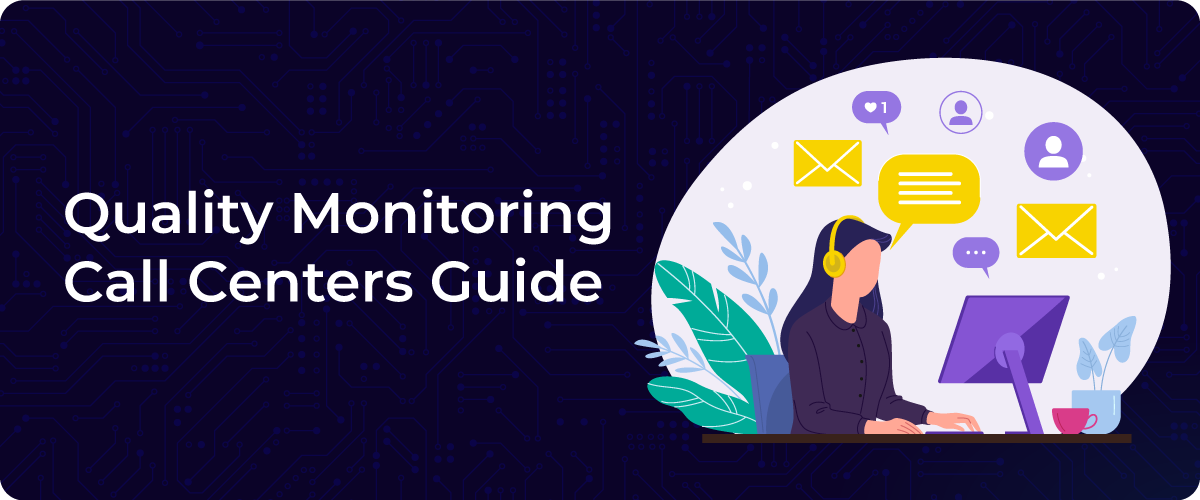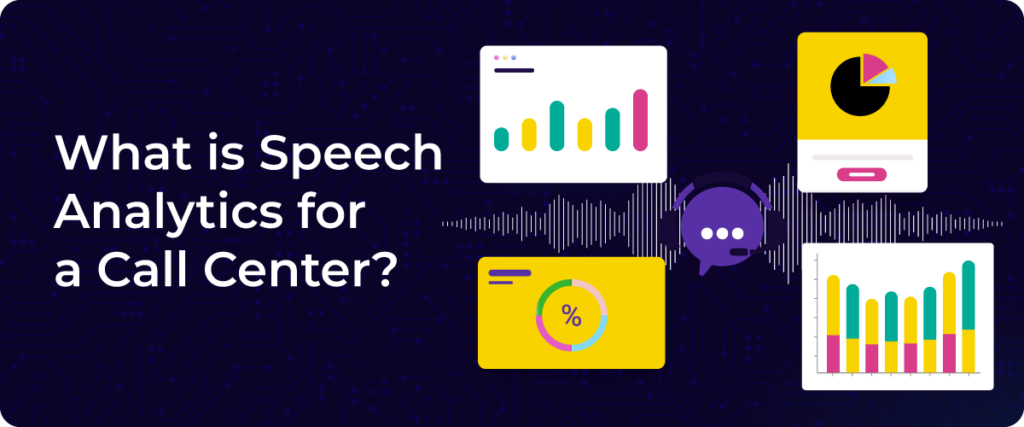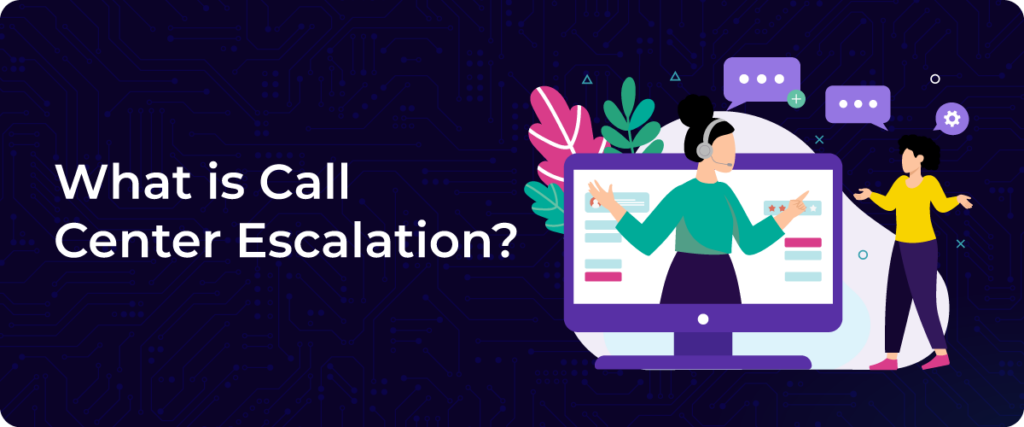
Introduction to Quality Monitoring
Quality Monitoring (QM) plays a pivotal role in ensuring exceptional customer experiences within call centers. This practice involves systematic evaluation and assessment of interactions between agents and customers to maintain and enhance service quality. In this blog, we delve into the significance of quality monitoring, explore its imperative for call center excellence, and outline the best practices for its successful implementation.
Defining Quality Monitoring in the Context of Call centers
Quality Monitoring, in the realm of call centers, refers to the process of observing, evaluating, and analyzing customer-agent interactions to measure the level of service provided. It involves assessing various factors such as agent performance, adherence to scripts, compliance with protocols, and overall customer satisfaction.
The Significance of Quality in Call center Operations
Quality serves as the cornerstone upon which successful call center operations are built. Its influence permeates every aspect of the customer-agent interaction and has far-reaching implications for the overall success of a call center. Recognizing and prioritizing quality is essential for call centers to thrive in a competitive business landscape and ensure a positive impact on customer satisfaction, loyalty, and retention.
Foundation of Customer Satisfaction: Quality is the linchpin that directly impacts customer satisfaction. When customers interact with a call center and experience consistently high-quality service, they are more likely to have their needs met promptly and effectively. This leads to positive experiences that resonate with customers and contribute to their overall satisfaction with the brand.
Fostering Customer Loyalty: Exceptional quality builds trust and fosters customer loyalty. When customers consistently receive reliable and efficient service, they form a strong connection with the call center. This sense of loyalty translates into repeat business and long-term relationships, increasing customer lifetime value and reducing churn.
Ensuring Customer Retention: In a competitive landscape where customers have numerous options, maintaining their loyalty is crucial. Quality plays a pivotal role in retaining customers by creating positive experiences that leave a lasting impression. A call center that consistently meets or exceeds customer expectations becomes a preferred choice, reducing the likelihood of customers seeking alternatives.
Building Positive Brand Perceptions: Call centers are often the first point of contact between customers and a brand. The quality of interactions shapes customers’ perceptions of the brand. A call center that consistently delivers high-quality service contributes to building a positive brand image characterized by reliability, professionalism, and customer-centricity.
Maintaining a Competitive Edge: In a crowded marketplace, a commitment to quality sets a call center apart from its competitors. High-quality service becomes a unique selling proposition that attracts customers seeking exceptional experiences. This competitive edge is a valuable asset that positions the call center as a preferred destination for customers seeking assistance.
Enhancing Word-of-Mouth Recommendations: Satisfied customers are more likely to share their positive experiences with friends, family, and peers. Word-of-mouth recommendations hold significant influence, and when customers share their positive interactions with a call center, it extends the reach of the brand’s reputation and credibility.
Driving Employee Engagement: Quality is not limited to customer experiences alone; it also influences employee engagement. Agents who deliver quality interactions feel a sense of accomplishment and pride in their work. This satisfaction contributes to higher morale, reduced turnover, and a positive work culture.
Improving Operational Efficiency: Quality isn’t solely about customer interactions; it also extends to operational efficiency. Well-defined quality standards and processes streamline workflows, reduce errors, and ensure consistent service delivery. This efficiency translates to smoother operations, faster issue resolution, and improved resource utilization.

The Imperative of Quality Monitoring
Why Monitoring Quality is Crucial for Call center Excellence
Quality monitoring serves as a strategic tool for call center excellence. It empowers organizations to identify strengths and areas of improvement, ultimately leading to enhanced operational efficiency and better customer experiences. By consistently monitoring quality, call centers can adapt swiftly to changing customer preferences and industry trends.
The Direct Impact of Quality Monitoring on Customer Satisfaction
Customer satisfaction is a linchpin of business success. Quality monitoring directly influences this by ensuring that interactions are handled professionally, empathetically, and efficiently. When agents consistently meet or exceed quality benchmarks, customer satisfaction soars, leading to increased loyalty and positive word-of-mouth recommendations.
Laying the Foundation: Building a Robust Quality Monitoring Program
Assembling a Team of Quality Monitoring Experts
Creating a dedicated team of quality monitoring experts is the first step in building an effective program. These experts possess a deep understanding of call center operations, customer expectations, and evaluation criteria. Their insights drive the program’s success.
Pinpointing Key Metrics for Effective Monitoring
Identifying relevant metrics for quality evaluation is crucial. Metrics could include first-call resolution rates, average handling time, call abandonment rates, and customer feedback scores. Defining these metrics ensures the evaluation process aligns with the call center’s objectives.
Crafting Comprehensive Scorecards for Agent Evaluation
Scorecards serve as blueprints for agent evaluation. These scorecards should encompass a range of criteria, including communication skills, problem-solving abilities, adherence to scripts, and the ability to handle challenging scenarios. Comprehensive scorecards provide agents with actionable feedback for improvement.
Harnessing Technology and Automation in Quality Monitoring
The Role of Automation in Streamlining Monitoring Processes
Automation expedites quality monitoring processes by eliminating manual tasks. Automated tools can transcribe conversations, analyze sentiment, and identify keywords. This technology saves time and enables quality monitoring teams to focus on analysis and coaching.
Integrating Tech Solutions for Enhanced Monitoring Capabilities
Technological advancements offer solutions for monitoring various communication channels such as calls, chats, and emails. Call centers can integrate speech analytics, sentiment analysis, and AI-powered tools to gain deeper insights into interactions, enabling more accurate evaluations.

Ensuring Consistency and Continual Improvement
The Importance of Calibration Sessions in Quality Monitoring
Calibration sessions involve bringing together quality monitoring experts to ensure consistency in evaluations. These sessions promote alignment, reduce subjectivity, and refine the evaluation process, resulting in more accurate assessments.
Effective Training and Coaching Strategies for Agents
Quality monitoring isn’t just about evaluation; it’s about improving agent performance. Regular training sessions and coaching based on quality assessment feedback help agents refine their skills, enhance customer interactions, and contribute to overall call center success.
Conclusion: The Long-Term Benefits of Quality Monitoring
How Quality Monitoring Transforms Call center Performance and Customer Experience
Quality monitoring isn’t a one-time effort; it’s an ongoing commitment to excellence. When call centers implement robust quality monitoring programs, they witness improved agent performance, reduced customer churn, higher customer satisfaction rates, and increased operational efficiency. Embracing quality monitoring transforms call center performance and customer experiences, making it an essential practice for success in today’s competitive landscape.
FAQ
Q1: What is Quality Monitoring in call centers?
Quality Monitoring in call centers involves systematic evaluation and assessment of customer-agent interactions to ensure high service standards and enhance customer experiences.
Q2: How does Quality Monitoring impact customer satisfaction?
Quality Monitoring directly influences customer satisfaction by ensuring interactions are handled professionally, empathetically, and efficiently, leading to increased loyalty and positive word-of-mouth recommendations.
Q3: What are some key best practices for implementing Quality Monitoring?
Assembling a team of experts, defining relevant metrics, crafting comprehensive scorecards, harnessing technology for automation, conducting calibration sessions, and providing effective training and coaching are some best practices for implementing Quality Monitoring.
Q4: How does automation play a role in Quality Monitoring?
Automation streamlines monitoring processes by eliminating manual tasks. It can transcribe conversations, analyze sentiment, and identify keywords, allowing monitoring teams to focus on analysis and coaching.
Q5: What are the long-term benefits of Quality Monitoring?
Implementing robust Quality Monitoring programs leads to improved agent performance, reduced customer churn, higher customer satisfaction rates, and increased operational efficiency, transforming call center performance and customer experiences.
Unleash Your Contact Center’s Potential Today! 👉 Get Started with ConvoZen.AI and Elevate Customer Experience.


